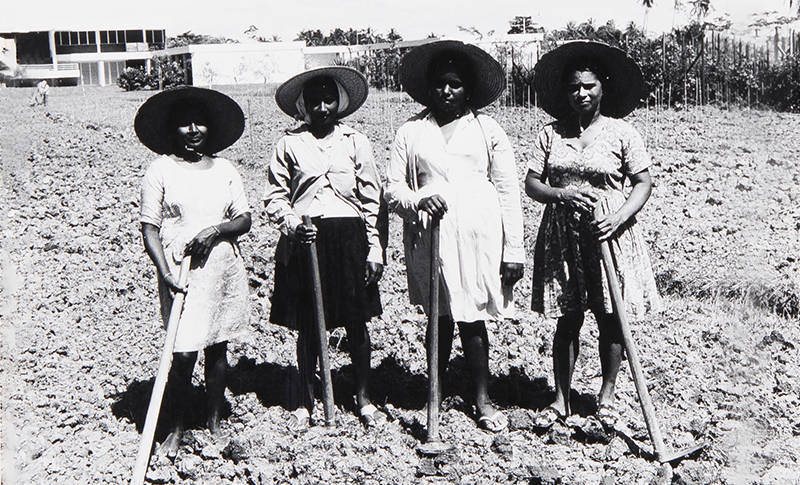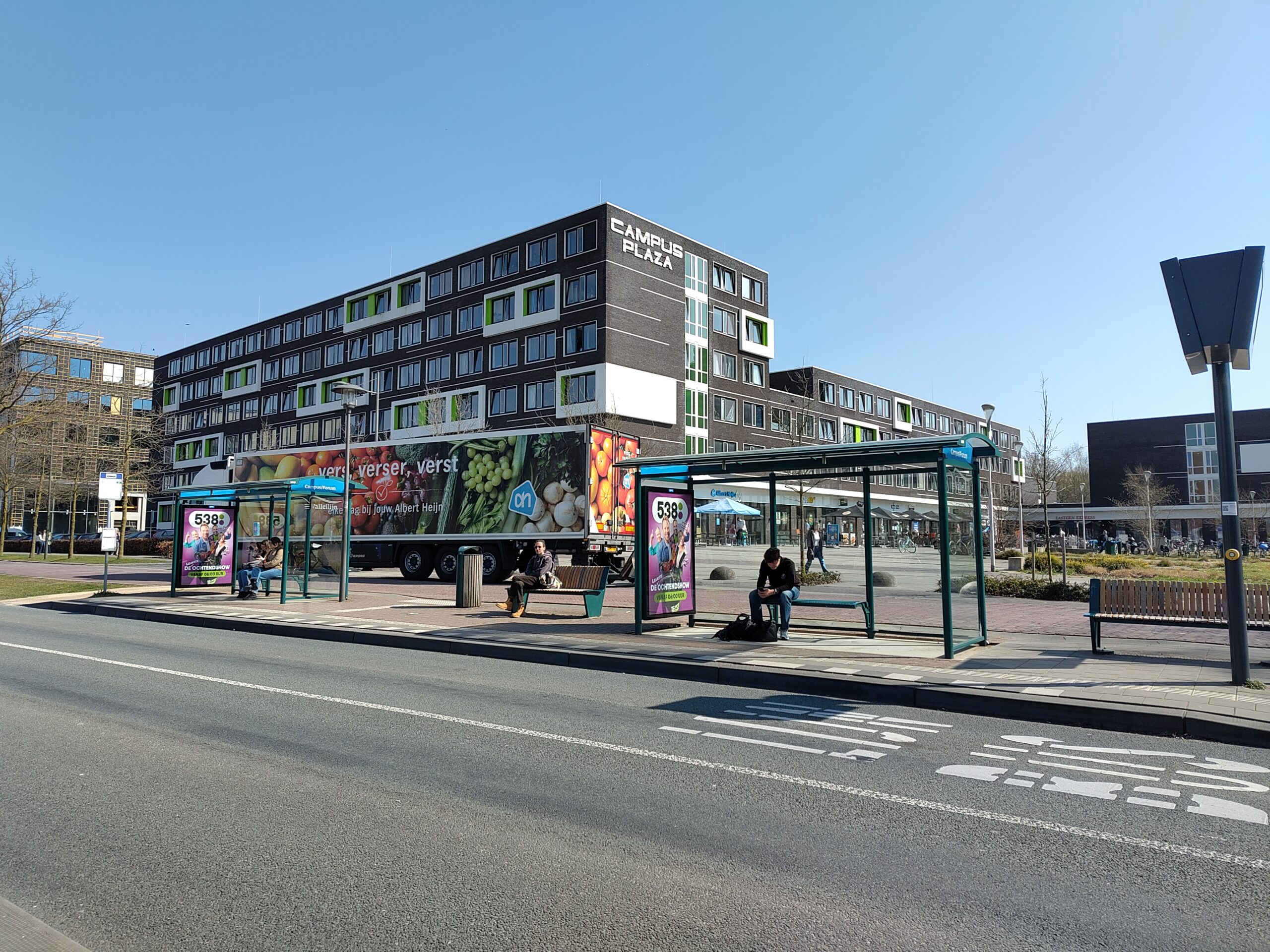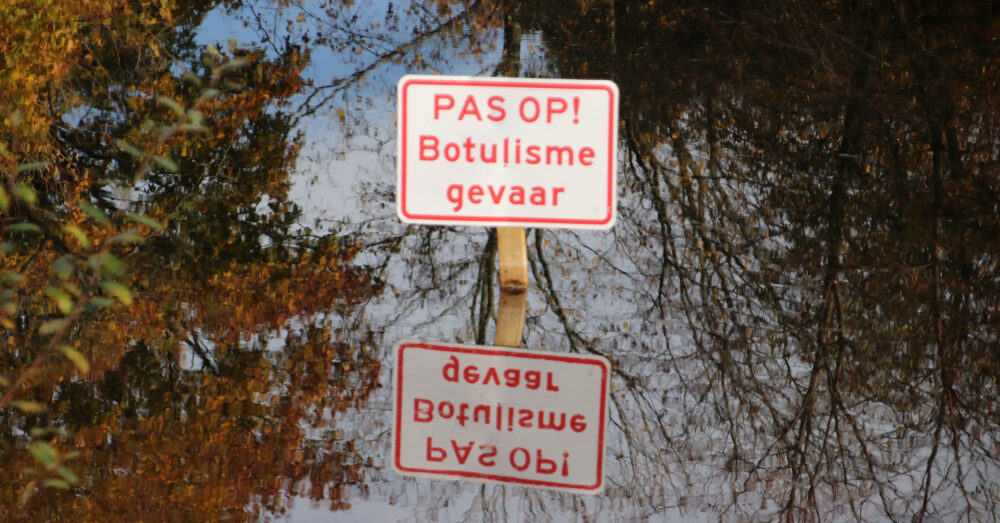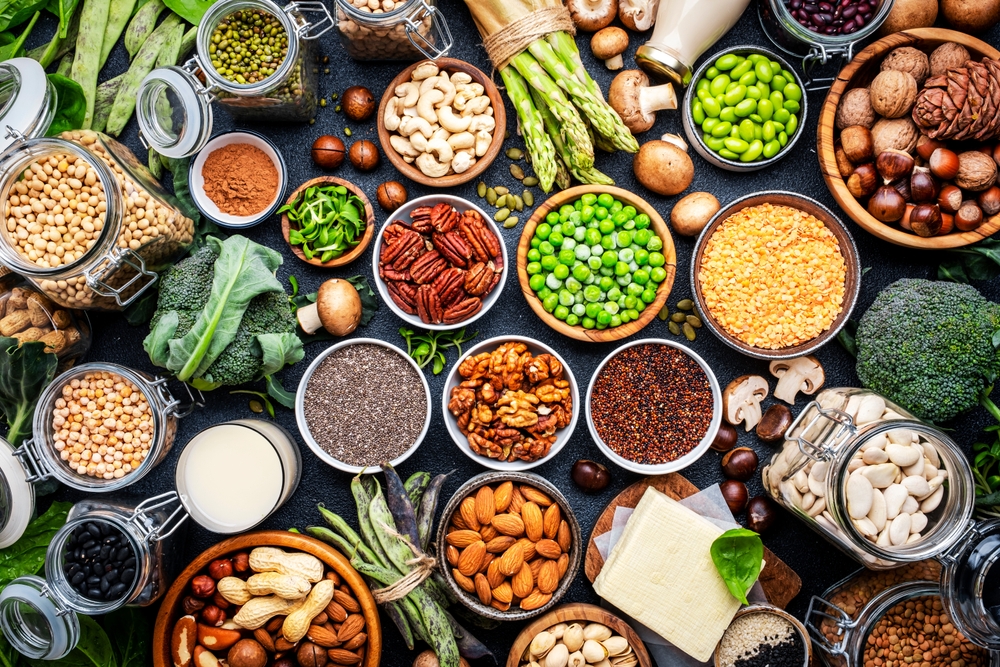Now that it is possible again, Suriname is keen to restart collaboration with WUR. Projects in the areas of vegetable cultivation, residue research, the climate and rice cultivation have already been formulated. But who is going to foot the bill?
The president of Suriname, Chan Santokhi, paid a visit to the Netherlands early this month. He talked to the Dutch government, appeared on TV, and visited WUR’s greenhouse horticulture research centre in Bleiswijk, together with his minister of Agriculture, Prahlad Sewdien. After a nine-year interruption, Suriname is keen to collaborate with Wageningen again.
The Netherlands put its collaboration with Suriname on hold for years because Suriname had passed amnesty legislation giving former president Desi Bouterse immunity from prosecution for the ‘December assassinations’. The Netherlands froze the millions of euros of funding allocated to Suriname in a treaty after it became independent in 1975. That money might be made available again now that Bouterse is no longer president and is to go on trial.
The new government particularly wants to work with WUR on reducing the use of pesticides in vegetable and rice farming in Suriname. Too many pesticide residues on these foods is not just bad for human health and the environment, but affects Suriname’s export opportunities as well. So Suriname would like advice from WUR on the use of Integrated Pest Management (IPM), in which biological methods and natural enemies are used against pests and diseases. ‘The question is, which biological methods work well in Suriname’s hot, humid climate,’ says Arianne de Bye, an advisor to the Surinamese minister of Agriculture, Livestock and Fisheries. And an alumnus of Wageningen University.
Data systems
Suriname has also asked WUR to help with setting up a laboratory for residue research. This lab would test food safety. A testing lab of this kind was built by the government 10 years ago, with EU funding, but it burnt down just before it became operational. ‘We hope Wageningen Food Safety Research can help us set up a good institute and train its staff,’ says De Bye.
Thirdly, the government seeks WUR’s help with charting and analysing climate change in Suriname. De Bye works on this issue through her part-time job at the UN’s Food and Agriculture Organization (FAO) in Suriname.
WUR can help Suriname reduce pesticide use we don’t submit enough projects that get approved
An FAO project aims to collect data on things like flooding, drought and salinization in the coastal plains of Suriname, an area with a lot of rice, vegetable and livestock farming. That data should form the basis for an approach to adapting the production system in Suriname to reduce its negative impact on the climate and respond better to the changing climate.
WUR, in the person of Annemarie de Groot, knows a lot about the data system that Suriname could use for this purpose. De Bye hopes that De Groot will give training courses in Suriname about which data are required for a good analysis and how to feed the system with data. The aim is to prepare a large-scale project
to make agriculture in Suriname resilient in the face of climate change, says De Bye. Due to be submitted to the Green Climate Fund, this is another project that WUR can contribute to with its knowledge and experience. One potential problem is that the FAO works with much lower rates for training and consultancies than WUR is used to.
Partners of old
So WUR also wants to explore cheaper ways of collaborating with local partners. To this end, it looks to a partner of old: the Centre for Agricultural Research in Suriname (CELOS). CELOS was set up in 1965 by the then Wageningen Agricultural College, which led the research there until Suriname became independent. After that, the Agricultural College continued to run projects with CELOS, but that stopped after Desi Bouterse’s coup in 1980. Although it doesn’t have much research funding, CELOS is still the best and most reliable partner in Suriname in the field of agricultural, environmental and forestry research. The centre, currently led by WUR alumna Imana Power, has good laboratories, for a start.
Another potential Surinamese partner has emerged recently: the Anne van Dijk Rice Research Centre Nickerie (ADRON). This centre, named after a rice-breeding pioneer from The Hague, was established in 1994 to increase rice production. The rice centre is near the small town of Wageningen in Suriname, where Dutch Wageningen staff set up the Foundation for the Development of Mechanized Agriculture in colonial times.
This centre has been in decline for decades, and its only connection with WUR was Tinde van Andel’s research on the diversity and origins of rice varieties in Suriname. With the help of WUR alumnus Robert Elmont, ADRON is now trying to revive the collaboration between the two Wageningens. The centre is mainly seeking support with the problem of heavy metals in the soil – the likes of arsenic, cadmium, lead and mercury – that pose a public health problem.
Everyone is hoping the Dutch government will finance this sort of project, and therefore awaiting the new government in the Netherlands. But Suriname is looking at international funding sources too. De Bye: ‘I can see there’s a lot of money available but so far we don’t submit enough projects that get approved. I see potential if we collaborate well in Suriname, share the same goals, and get people with expertise involved.’

 Wageningen founded CELOS (the Centre for Agricultural Research – back left in the photo) in Suriname in 1965 and is now exploring the scope for new collaboration with the institute. Photo: Beeldbank DML, 1971
Wageningen founded CELOS (the Centre for Agricultural Research – back left in the photo) in Suriname in 1965 and is now exploring the scope for new collaboration with the institute. Photo: Beeldbank DML, 1971 

